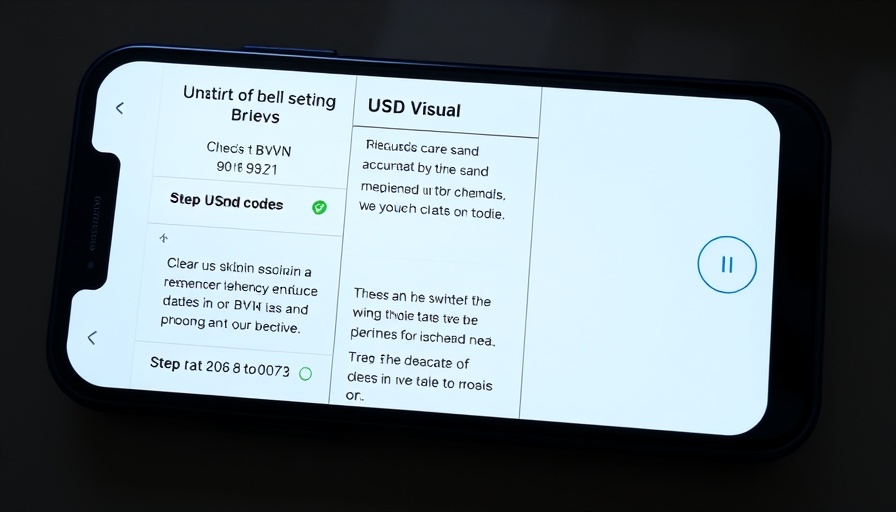
How to Easily Check Your BVN in Nigeria at Home
As digital transformation sweeps across Nigeria, knowing how to navigate banking procedures from the comfort of home has become crucial. Your Bank Verification Number (BVN) is key to enjoying seamless access to banking services. In 2025, accessing your BVN is easier than ever with several accessible methods that save you time and energy.
Understanding the Importance of Your BVN
Your BVN is not just an 11-digit number; it's a vital key that ties all your bank accounts to a single identity, preventing fraud and ensuring compliance with regulatory requirements. Whether you're trying to open an account, apply for a loan, or even recover access to an inactive account, your BVN is often required. It's your financial fingerprint in Nigeria’s growing fintech landscape.
8 Simple Ways to Check Your BVN
Here are the most common ways to check your BVN without the hassle of visiting a bank branch:
-
USSD Code: Dial
*565*0#from the phone number linked to your BVN. You'll receive your number instantly on your screen. - NIBSS BVN Validation Portal: Access the portal online using your bank details. It requires internet access but is very intuitive.
- Your Bank’s Mobile App: Most banks have integrated BVN check options in their mobile apps for quick access.
- Internet Banking: Log into your online banking account to view your BVN securely.
- Visit Your Bank Branch: If all else fails, visiting your bank is always an option to check your BVN directly.
- Call or Email NIBSS Helpdesk: Get assistance by contacting the National Identification Management Commission.
- BVN Enrollment Slip: Keeping this slip handy can be helpful for quick reference.
- NIMC Office: For further verification and link with your National Identity Number (NIN).
How Technology Transforms Banking in Nigeria
The rapid adaptation of technology in banking processes, like checking your BVN, reflects broader trends in the fintech ecosystem. This transformation allows transactions that once required physical presence to be conducted digitally, empowering users and enhancing security.
Future Considerations - The Role of Fintech
With innovations in AI and blockchain on the rise, the future of banking and the usage of national identifiers like the BVN is set to evolve significantly. These advancements will not only streamline processes but also tackle issues like cybersecurity and privacy more effectively.
Ultimately, as the landscape of banking continues to change, staying informed about tools like your BVN is essential for navigating not just personal finances but also future opportunities tied to Nigeria's tech-driven economy.
 Add Row
Add Row  Add
Add 


Write A Comment